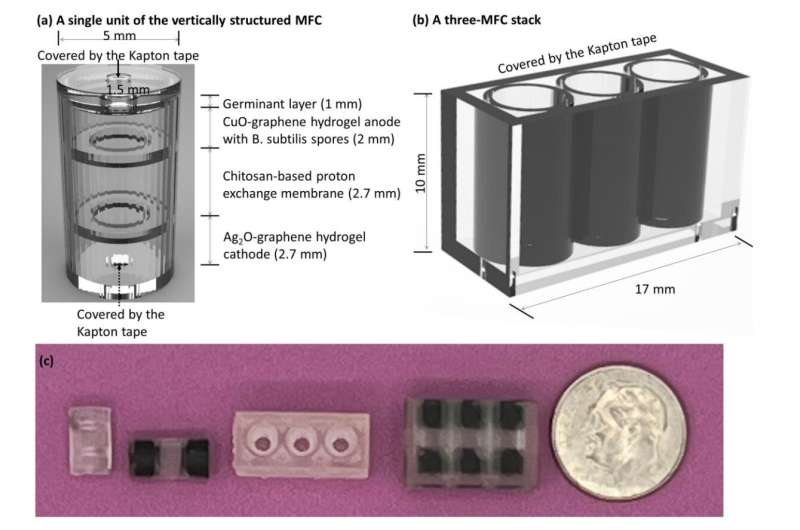Phys.org April 12, 2023
Controllable microbial electrocatalytic activity in a miniaturized microbial fuel cells (MFCs) with unlimited biodegradable energy resources would enable simple power generation in various environmental settings. However, the short shelf-life of living biocatalysts, few ways to activate the stored biocatalysts, and extremely low electrocatalytic capabilities render the miniature MFCs unsuitable for practical use. Researchers at State University of New York at Binghamton used heat-activated Bacillus subtilis spores as a dormant biocatalyst that could survive storage and rapidly germinate when exposed to special nutrients that are preloaded in the device. A microporous, graphene hydrogel allowed the adsorption of moisture from the air, moved the nutrients to the spores, and triggered their germination for power generation. Forming a Cuco–hydrogel anode and an Ag2O–hydrogel cathode promoted superior electrocatalytic activities leading to an exceptionally high electrical performance in the MFC. The battery-type MFC device was readily activated by moisture harvesting, produced a maximum power density of 0.4 mW cm−2 and a maximum current density of 2.2 mA cm−2. According to the researchers the MFC configuration is readily stackable in series and a three-MFC pack produces enough power for several low-power applications, demonstrating its practical feasibility as a sole power source… read more. TECHNICAL ARTICLE

Detailed dimensions of (a) the MFC with a vertical configuration and (b) its stack… Credit: Small (2023)